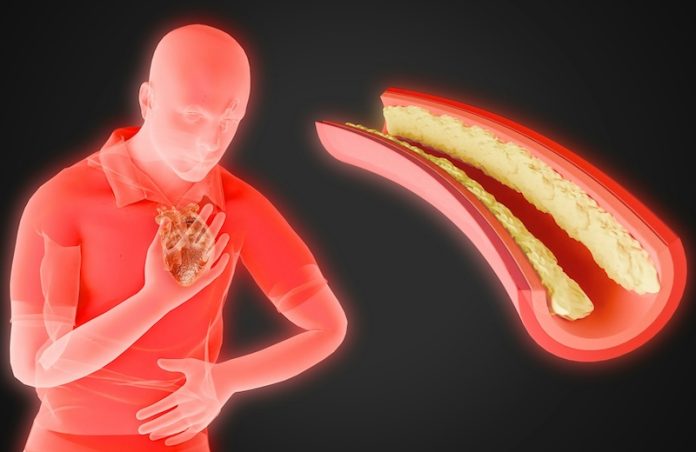
Researchers from New York University have uncovered a new role for platelets, showing they trigger an inflammatory response that damages arteries.
This discovery, led by Dr. Tessa Barrett and her team, was published in Science Translational Medicine.
Platelets are tiny, sticky fragments of cells that help form blood clots. They are crucial for stopping bleeding by clotting blood at injury sites. However, their role goes beyond just preventing severe bleeding.
Heart disease, particularly atherosclerosis, is a leading cause of death in Western countries. Atherosclerosis involves the buildup of plaque in the arteries.
This plaque is made up of cholesterol, fatty substances, calcium, and other debris. Over time, the plaque hardens and narrows the arteries, restricting the flow of oxygen-rich blood.
Traditionally, the “Lipid Hypothesis” or “Cholesterol Hypothesis” has been the main explanation for atherosclerosis. It suggests that high cholesterol levels cause the disease.
However, this does not fully explain how plaque forms and how narrowed arteries lead to heart attacks and strokes.
In their study, the NYU team explored how platelets contribute to atherosclerosis. They discovered that platelets do more than just help with blood clotting. These small fragments also play a significant role in inflammation and plaque formation.
Activated platelets release various inflammatory substances that attract leukocytes (white blood cells) to sites of inflammation.
This process, known as chemotaxis, involves leukocytes moving to areas in blood vessels with high inflammation. Once there, leukocytes stick to and move through the blood vessel walls, contributing to the inflammatory process.
The researchers also found that platelets affect a protein called SOCS3. Platelet regulation of myeloid SOCS3 accelerates the development of atherosclerosis.
This means that platelets are crucial in promoting inflammation that leads to artery damage, even in the absence of clot formation (thrombosis).
Interestingly, the study highlighted that platelets are not necessarily involved in thrombosis within arteries. Instead, they contribute to inflammation, which plays a significant role in atherosclerosis.
Among women who had heart attacks, the researchers observed increased levels of SOCS3 protein and higher amounts of monocyte-platelet aggregates. Another group of patients with atherosclerosis in their leg arteries also showed elevated SOCS3 protein levels, increased platelet activity, and more inflammation.
These findings reveal a direct link between platelet-mediated inflammation, SOCS3, and heart disease. The study shows that while platelets are essential for clotting, they also play a hidden role in causing artery damage through inflammation.
Understanding this new function of platelets could lead to better treatments for heart disease, focusing on reducing inflammation to prevent atherosclerosis.
If you care about depression, please read studies about how dairy foods may influence depression risk, and B vitamins could help prevent depression and anxiety.
For more information about mental health, please see recent studies that ultra-processed foods may make you feel depressed, and extra-virgin olive oil could reduce depression symptoms.
Copyright © 2024 Knowridge Science Report. All rights reserved.



